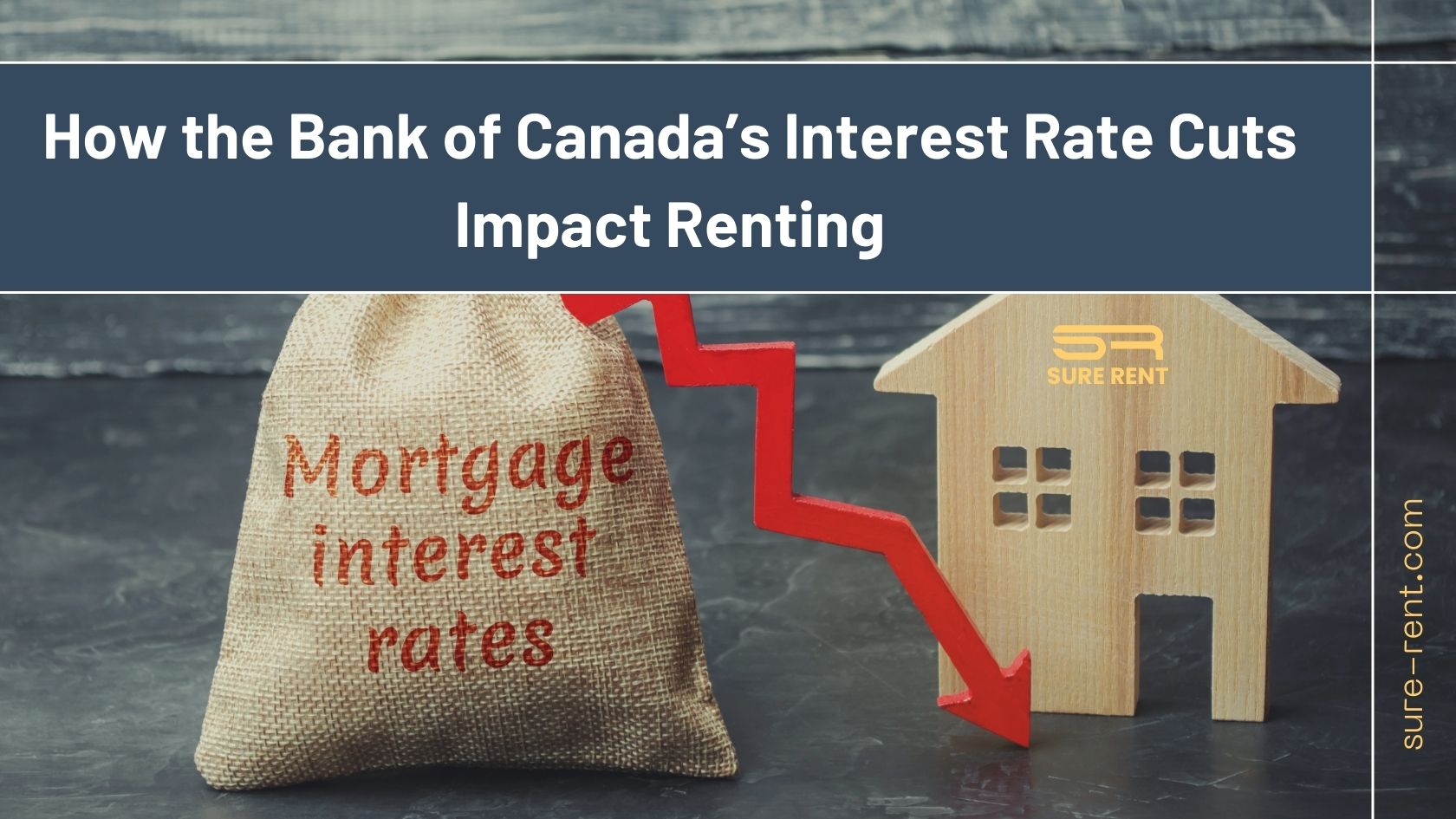You may wonder, how interest rate cuts affect renters? When the Bank of Canada announces an interest rate cut, the ripple effects are felt throughout the economy, including the housing and rental markets. While the headlines often focus on how lower rates benefit homeowners and buyers, renters are also affected in ways that may not be immediately obvious. Let’s explore how interest rate cuts influence the rental market and what it means for tenants and landlords alike.
Increased Investment in Rental Properties
Lower interest rates make borrowing cheaper for real estate investors. This often encourages property owners to purchase additional rental properties or invest in multi-unit developments. As a result, the supply of rental units may increase, potentially giving renters more options and stabilizing rent prices in competitive markets.
Reduced Costs for Landlords
Landlords with variable-rate mortgages benefit directly from interest rate cuts, as their mortgage payments decrease. This reduction in expenses may allow some landlords to pass on the savings to tenants by keeping rent increases modest or offering better maintenance and upgrades to the property. However, not all landlords will choose to share these savings, as market demand ultimately dictates rental pricing.
Greater Demand for Rentals
Lower interest rates can also drive up demand for rental properties. Prospective homebuyers may delay purchasing a home, choosing to rent instead, while waiting for housing prices to stabilize or saving for a down payment. This increased demand could lead to tighter rental markets in some areas, especially urban centers.
Regional Variations
The impact of interest rate cuts on renting varies significantly by region. In cities where housing affordability is already a challenge, increased demand for rentals can lead to upward pressure on rents despite the broader economic benefits of lower interest rates. Conversely, in areas with a surplus of rental properties, tenants might find more negotiating power as landlords strive to attract renters.
Opportunities for Renters
While lower interest rates can create challenges for renters in high-demand areas, they also present opportunities. Renters may be able to negotiate better lease terms, as landlords aim to retain reliable tenants in uncertain economic times. Additionally, with increased investment in rental housing, tenants might benefit from a greater variety of modern, well-maintained units entering the market.
Final Thoughts
The Bank of Canada’s decision to cut interest rates has far-reaching implications, and its impact on the rental market is multifaceted. Renters and landlords alike need to stay informed about these economic shifts to make strategic decisions. For renters, it’s essential to understand how these changes affect rental affordability and availability. For landlords, lower rates may present opportunities to expand portfolios and enhance property offerings.
At Sure-Rent, we’re committed to helping both landlords and tenants navigate these changes with ease. Whether you’re looking for expert property management services or seeking a rental property that meets your needs, our talented team is here to help.
Learn More
- For updates on interest rate decisions, visit the Bank of Canada.
- Explore rental market insights at Canada Mortgage and Housing Corporation (CMHC).
- Stay informed on real estate trends with the Canadian Real Estate Association (CREA).
- Find in-depth market analysis at Urbanation.
- Read the latest economic news at CBC Business and The Globe and Mail.
- Access regional data through the Toronto Regional Real Estate Board (TRREB) or Vancouver Island Real Estate Board (VIREB).
How the Bank of Canada’s Interest Rate Cuts Impact Renting
When the Bank of Canada announces an interest rate cut, the ripple effects are felt throughout the economy, including the housing and rental markets. While the headlines often focus on how lower rates benefit homeowners and buyers, renters are also affected in ways that may not be immediately obvious. Let’s explore how interest rate cuts influence the rental market and what it means for tenants and landlords alike.
Increased Investment in Rental Properties
Lower interest rates make borrowing cheaper for real estate investors. This often encourages property owners to purchase additional rental properties or invest in multi-unit developments. As a result, the supply of rental units may increase, potentially giving renters more options and stabilizing rent prices in competitive markets.
Reduced Costs for Landlords
Landlords with variable-rate mortgages benefit directly from interest rate cuts, as their mortgage payments decrease. This reduction in expenses may allow some landlords to pass on the savings to tenants by keeping rent increases modest or offering better maintenance and upgrades to the property. However, not all landlords will choose to share these savings, as market demand ultimately dictates rental pricing.
Greater Demand for Rentals
Lower interest rates can also drive up demand for rental properties. Prospective homebuyers may delay purchasing a home, choosing to rent instead, while waiting for housing prices to stabilize or saving for a down payment. This increased demand could lead to tighter rental markets in some areas, especially urban centers.
Regional Variations
The impact of interest rate cuts on renting varies significantly by region. In cities where housing affordability is already a challenge, increased demand for rentals can lead to upward pressure on rents despite the broader economic benefits of lower interest rates. Conversely, in areas with a surplus of rental properties, tenants might find more negotiating power as landlords strive to attract renters.
Opportunities for Renters
While lower interest rates can create challenges for renters in high-demand areas, they also present opportunities. Renters may be able to negotiate better lease terms, as landlords aim to retain reliable tenants in uncertain economic times. Additionally, with increased investment in rental housing, tenants might benefit from a greater variety of modern, well-maintained units entering the market.
Final Thoughts
The Bank of Canada’s decision to cut interest rates has far-reaching implications, and its impact on the rental market is multifaceted. Renters and landlords alike need to stay informed about these economic shifts to make strategic decisions. For renters, it’s essential to understand how these changes affect rental affordability and availability. For landlords, lower rates may present opportunities to expand portfolios and enhance property offerings.
At Sure-Rent, we’re committed to helping both landlords and tenants navigate these changes with ease. Whether you’re looking for expert property management services or seeking a rental property that meets your needs, our talented team is here to help.
Learn More
- For updates on interest rate decisions, visit the Bank of Canada.
- Explore rental market insights at Canada Mortgage and Housing Corporation (CMHC).
- Stay informed on real estate trends with the Canadian Real Estate Association (CREA).
- Find in-depth market analysis at Urbanation.
- Read the latest economic news at CBC Business and The Globe and Mail.
- Access regional data through the Toronto Regional Real Estate Board (TRREB) or Vancouver Island Real Estate Board (VIREB).



